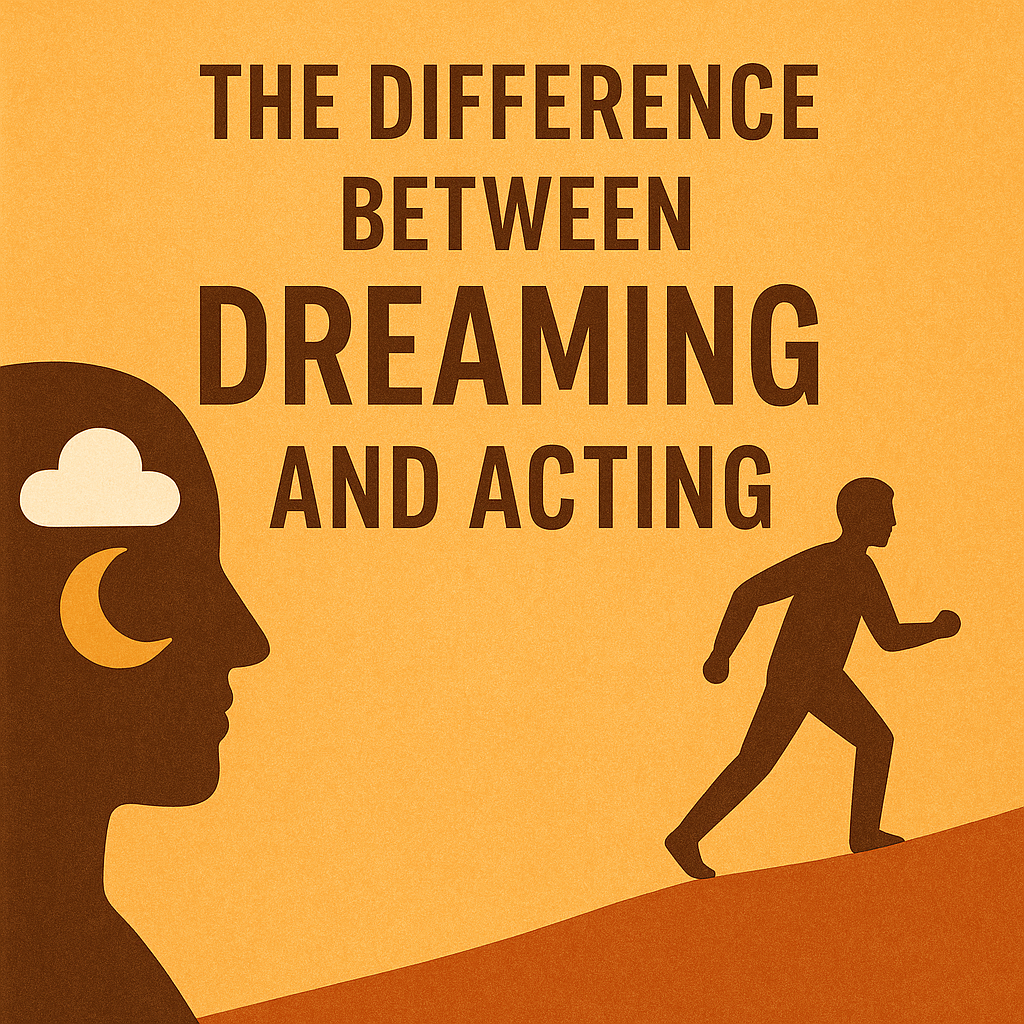Dreams are powerful. They inspire us, give us hope, and show us what’s possible. But dreams alone are not enough. Without action, they remain just ideas in our minds. The real difference between those who achieve their goals and those who don’t lies in the ability to act.
In this article, we’ll explore the distinction between dreaming and acting, and how to turn your dreams into reality.
Why Dreams Matter
Dreams are the starting point of every great achievement. They:
- Spark creativity
- Give life direction
- Create motivation and excitement
- Help us imagine a better future
Every invention, business, or breakthrough began as a dream in someone’s mind. Dreaming is essential—but it’s only the first step.
The Limitations of Dreaming Without Action
Dreams without action can create frustration. You may feel inspired, but if you don’t move forward, the dream stays out of reach. Common problems include:
- Procrastination: Waiting for the “perfect moment.”
- Fear of failure: Being so afraid of mistakes that you never try.
- Comfort zone: Enjoying the idea of success without doing the hard work.
- Illusion of progress: Feeling accomplished just by talking about your dream instead of pursuing it.
Dreaming gives vision, but acting gives results.
What It Means to Act
Action means taking consistent steps toward your dream, no matter how small. It doesn’t require perfection, only persistence.
Examples of acting include:
- Writing the first page of your book
- Signing up for a class to learn new skills
- Sending out your first job application
- Saving money toward a business idea
Action transforms abstract ideas into tangible progress.
Key Differences Between Dreaming and Acting
| Dreaming | Acting |
|---|---|
| Imagining possibilities | Taking real steps toward them |
| Feels safe and easy | Feels uncomfortable but leads to growth |
| Endless possibilities | Specific, measurable results |
| Can fade away with time | Builds momentum with every effort |
How to Turn Dreams Into Action
1. Write Down Your Dream Clearly
A vague dream stays unclear. Define it: What do you want? Why do you want it? When do you want to achieve it?
2. Break It Into Small Steps
Big goals can be intimidating. Divide them into smaller, manageable tasks.
3. Set Deadlines
Deadlines create accountability and urgency. Without them, dreams drift endlessly.
4. Take Imperfect Action
Don’t wait until everything is perfect. Start with what you have, where you are.
5. Track Progress and Adjust
Celebrate wins, learn from setbacks, and keep adjusting your path.
6. Stay Consistent
Consistency matters more than intensity. Small daily actions compound into big results.
Why Acting Feels Hard
Many people stay stuck in the dreaming phase because action feels risky. Acting requires:
- Effort and discipline
- Facing fear of failure
- Leaving your comfort zone
- Accepting that mistakes are part of the journey
But the rewards of action—growth, learning, and success—are worth it.
Dreamers vs. Doers
- Dreamers talk about what they want.
- Doers take steps toward what they want.
- Dreamers hope.
- Doers create.
The world is full of dreamers, but it’s the doers who change their lives—and sometimes even the world.
Turn Your Dreams Into Reality
Dreaming is where it begins. Acting is where it happens. You don’t have to choose between them—both are important. But the secret is this: dream big, then act small and consistently.
With that formula, you’ll move from imagining a better life to actually living it.
